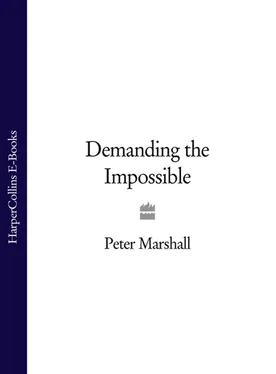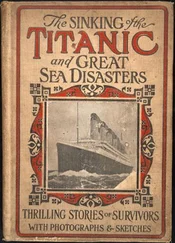Beneath the surface stability of rural England at the time, there was a seething underground of forest squatters and itinerant labourers and vagabonds. Many travellers went from city to city and congregated in London. These masterless men and women prized independence more than security, freedom more than comfort. They were like the beggars romanticized in Richard Brome’s A Joviall Crew (1641) who have an authentic anarchist ring about them:
The only freemen of a common-wealth;
Free above scot-free; that observe no law,
Obey no governor, use no religion,
But what they draw from their own ancient custom
Or constitute themselves. 5
It was from their ranks that the supporters of the Diggers and Ranters emerged.
The Diggers, inspired by Gerrard Winstanley, tried to set up a colony on wasteland on St George’s Hill near Walton-on-Thames in Surrey in April 1649. They declared in their manifesto The True Levellers’ Standard Advanced : ‘We may work in righteousness and lay the foundation of making the earth a common treasury for all.’ 6 There were initially about forty people. They came in peace, dug up and manured the wasteland and planted beans, wheat, rye, parsnips and carrots. Winstanley prophesized that their numbers would soon swell to thousands.
Despite their peaceful and productive husbandry, not only the local clergy, landlords, and magistrates harassed them but also the neighbouring freeholders. Their seedlings were trampled on, their tools were taken away, their crude huts pulled down. Yet they persevered for almost exactly a year. They were summoned before General Fairfax to explain themselves and a band of troops was sent to intimidate them. In a sense, Cromwell was right to see their experiment as profoundly subversive for the motley band of Diggers threatened the very foundations of his totalitarian rule. Winstanley after all had warned in A Watch - Word to the City of London (1649) that ‘All men have stood for freedom … For freedom is the man that will turn the world upside down, therefore no wonder he hath enemies.’ 7
It was exhaustion from continued harassment which finally ground the Diggers down on St George’s Hill (or rather George’s Hill, as they called it, for the radical Protestant tradition rejected saints). It seems likely however that they were only the tip of the iceberg of True Levellerism. But while there were many more experiments throughout the Home Counties, none survived much later than 1650. 8
Winstanley more than any other gave theoretical form to the Diggers’ aspirations, and the Diggers in turn spoke ‘for and in the behalf of all the poor oppressed people of England and the whole world’. 9 The son of a Wigan mercer, Winstanley had failed in the cloth trade in London. He was then obliged to become a hired labourer. He first began writing mystical religious pamphlets but rapidly moved from mysticism to a system of progressive and democratic rationalism. Like other radicals of his day, he expressed his social aspirations in religious terms and in a vigorous vernacular prose. Christ for him was a symbol of liberty: ‘True freedom’, he wrote, ‘lies in the community in spirit and community in the earthly treasury, and this is Christ the true man-child spread abroad in the creation, restoring all things into himself.’ 10
Like the adepts of the Free Spirit before him, and like Tolstoy after him, Winstanley believed that God is not a personal deity or Supreme Being but a ‘spirit that dwells in all mankind’. He identified God with Reason and Reason with the law of the universe: it is ‘Reason that governs the whole Creation’ and ‘the spirit that will purge mankind is pure reason’. 11 Every person subject to Reason becomes the Son of God. They are no longer ruled from without but from within, by their conscience, love or reason. As Winstanley wrote in the True Levellers ’ Standard , ‘the flesh of man being subject to reason, his maker, hath him to be his teacher and ruler within himself, therefore needs not run abroad after any teacher and ruler without him’. 12 It is the ‘riding and teaching power without [that] doth dam up the spirit of peace and liberty, first within the heart, by filling it with slavish fears of others; secondly without, by giving the bodies of one to be imprisoned, pounished and oppressed by the outward power of another’. 13 This is the key to Winstanley’s anarchism: external government is no longer necessary if people govern themselves according to their God-given reason.
Impressed by the interdependence of all human beings, Winstanley concluded that reason operates in society as a principle of order for the common preservation of humanity and that the government of rational beings is therefore superfluous. It is private property, not unruly human nature, which is the principal source of social conflict. From these premisses Winstanley in his early pamphlets attacked the social and political order and advocated an anarchist form of communist society, without the State, army and law. 14
In his The New Law of Righteousness (1649), issued two months before the setting up of the colony on George’s Hill, Winstanley recognized the close link between property and government: ‘buying and selling earth from one particular hand to another saying this is mine, upholding this propriety by a law of government of his own making thereby restraining other fellow creatures from seeking nourishment from their mother earth’. 15 He also realized that once men gain power, they intensify exploitation and oppression:
everyone that gets an authority into his hands tyrannizes over others; as many husbands, parents, masters, magistrates, that live after the flesh do carry themselves like oppressing lords over such as are under them, not knowing that their wives, children, servants, subjects are their fellow creatures, and hath an equal privilege to share them in the blessing of liberty. 16
Once established, the owners of property maintain their domination by government and law:
Let all men say what they will, so long as such are Rulers as call the Land theirs, upholding this particular propriety of Mine and Thine ; the common-people shall never have their liberty, nor the Land ever [be] freed from troubles, oppressions and complainings; by reason whereof the Creator of all things is continually provoked. 17
It was clear to Winstanley that the State and its legal institutions existed in order to hold the lower classes in place. Winstanley at this stage suggested that the only solution would be to abolish private property and then government and church would become superfluous. Magistrates and lawyers would no longer be necessary where there was no buying and selling. There would be no need for a professional clergy if everyone was allowed to preach. The State, with its coercive apparatus of laws and prisons, would simply wither away: ‘What need have we of imprisonment, whipping or hanging laws to bring one another into bondage?’ 18 It is only covetousness, he argued, which made theft a sin. And he completely rejected capital punishment: since only God may give and take life, execution for murder would be murder. He looked forward to a time when ‘the whole earth would be a common treasury’, when people would help each other and find pleasure in making necessary things, and ‘There shall be none lords over others, but everyone shall be a lord of himself, subject to the law of righteousness, reason and equity, which shall dwell and rule in him, which is the Lord.’ 19
Winstanley did not call for mass insurrection or the seizure of the lands of the rich. He was always opposed to violence, although he was not an absolute pacifist and advocated an extreme form of direct action. He estimated that between half and two-thirds of the country were wastelands which the poor could work together. He was prepared to eat his bread with the sweat of his brow and helped organize the mass squat on George’s Hill. Out of the experience he wrote his famous The Law of Freedom in a Platform , or True Magistracy Restored (1652) which offered a plan to reorganize English society on the basis of a system of common ownership.
Читать дальше












